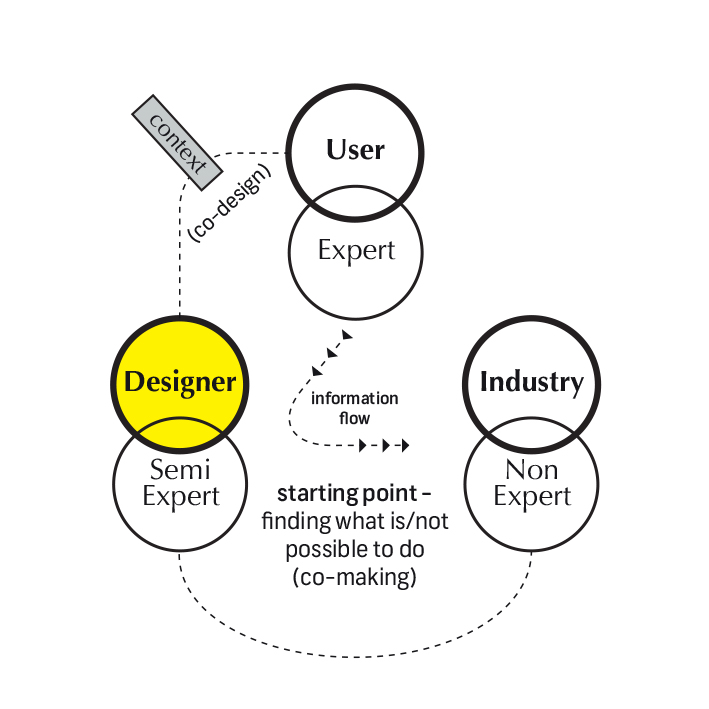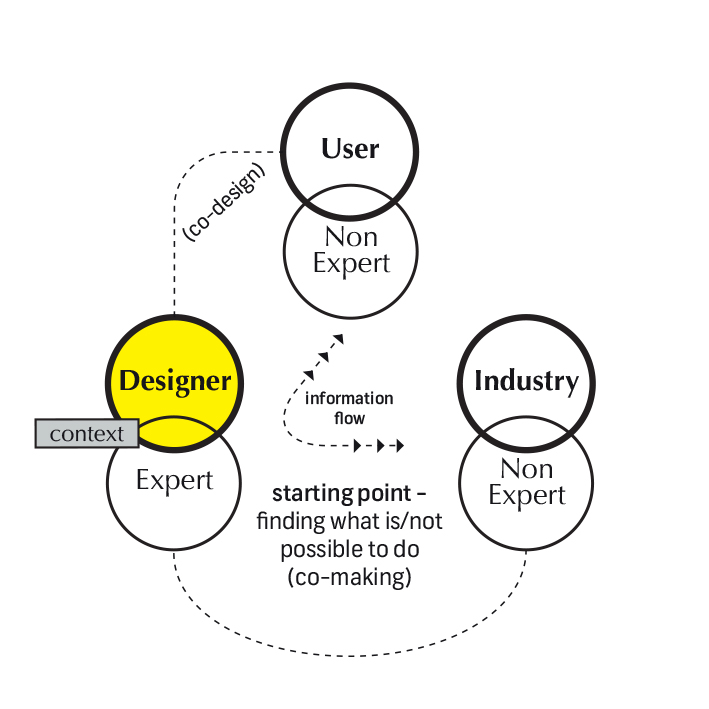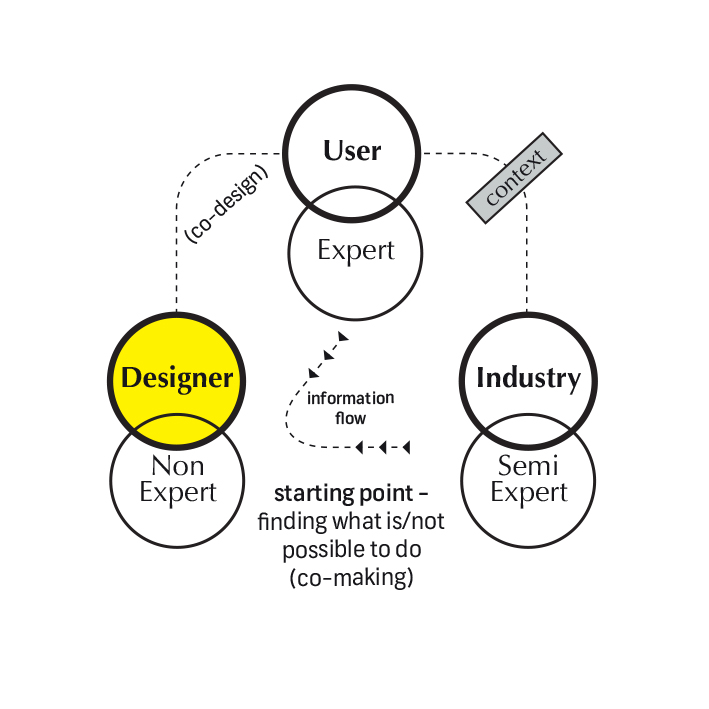I am an expert in the design and delivery of practice-based research, knowledge exchange and public engagement activities which offer routes to impact and embed active and inclusive collaborative learning and practice.
I am experienced in the development and delivery of cross-cultural academic and industry collaborations that respond to political, socio-economic, technological, and environmental challenges through physical, digital and virtual learning and teaching, research, and knowledge exchange activities that translate institutional objectives into local strategies and transform external partnerships, public engagement and outreach into successful student enterprise and employability.
I am interested in pioneering new knowledge exchange methodologies and strategic models for partnering public and private sector organisations with academia to conduct research and co-create prototypes that respond to everyday and future needs; investigating through world-class ideas and concepts that define the future of cities and urban environments, learning and experience, mobility and energy, transaction and trade, health and wellbeing, living and care, work and play.
My collaborative research examines and evaluates the role of autonomy and authority (expert, semi-expert, non-expert) in multidisciplinary (drawing from multiple disciplines) and transdisciplinary (combining several disciplines) design projects — and proposes ‘four models’ that transcend the existing modes of design education and design research into the 21st century.
 Model 1:
Model 1: Iterative & Inexpensive
A failing cheap, fast and often process that involves rapid prototyping of multiple iterations in response to user needs.
Shared views of the designer and the end-users in this approach helps with filling the unknown immediate demand and with accommodating change in circumstances or context. This approach encapsulates designs that arise from iteration; user feedback and quick results shape the outcome, a work-in-progress.
 Model 2:
Model 2: Blue Sky & Intuitive
A scenario creation process that involves asking ‘what if’ rather than relying on existing knowledge.
Individual views of the designer is at the heart of this model to help envision the future based on personal views/insights of the world. This approach encapsulates subjective appraisal of an output, rather than an objective, statistical one.
 Model 3:
Model 3: Inductive & Intuitive
A co-creating process that involves the designer to learn alongside the client to develop solutions suited for client as well as end-user needs.
Shared views of the designer and the industry partner helps with envisioning the future based on mutual insights of the world and key understanding of the subject matter. This approach encapsulates solutions that arise from non-experts, organically, endogenously and without direct external support.
 Model 4:
Model 4: Co-creating & Inductive
A specialist process that involves the designer to learn from and innovate with the community and develop solutions for shared needs.
The boundary between the expert and non-expert in this model is interchangeable, and both, the user and the industry partner are dependent on each other to educate the designer and influence the design outcome. This approach encapsulates solutions that arise from non-experts, organically, endogenously and without direct external support.